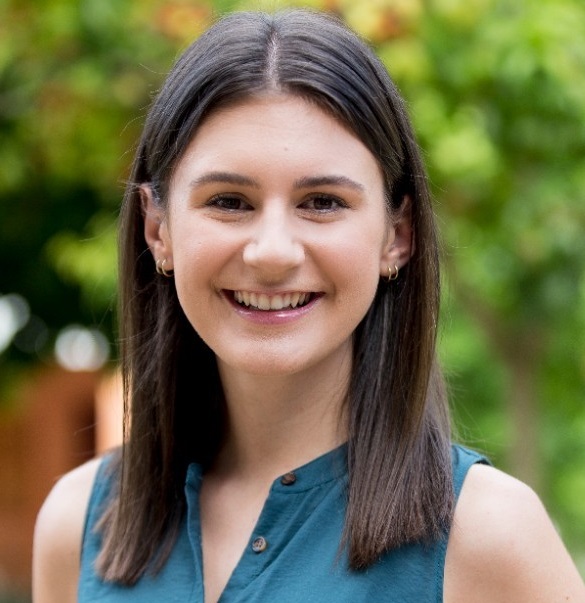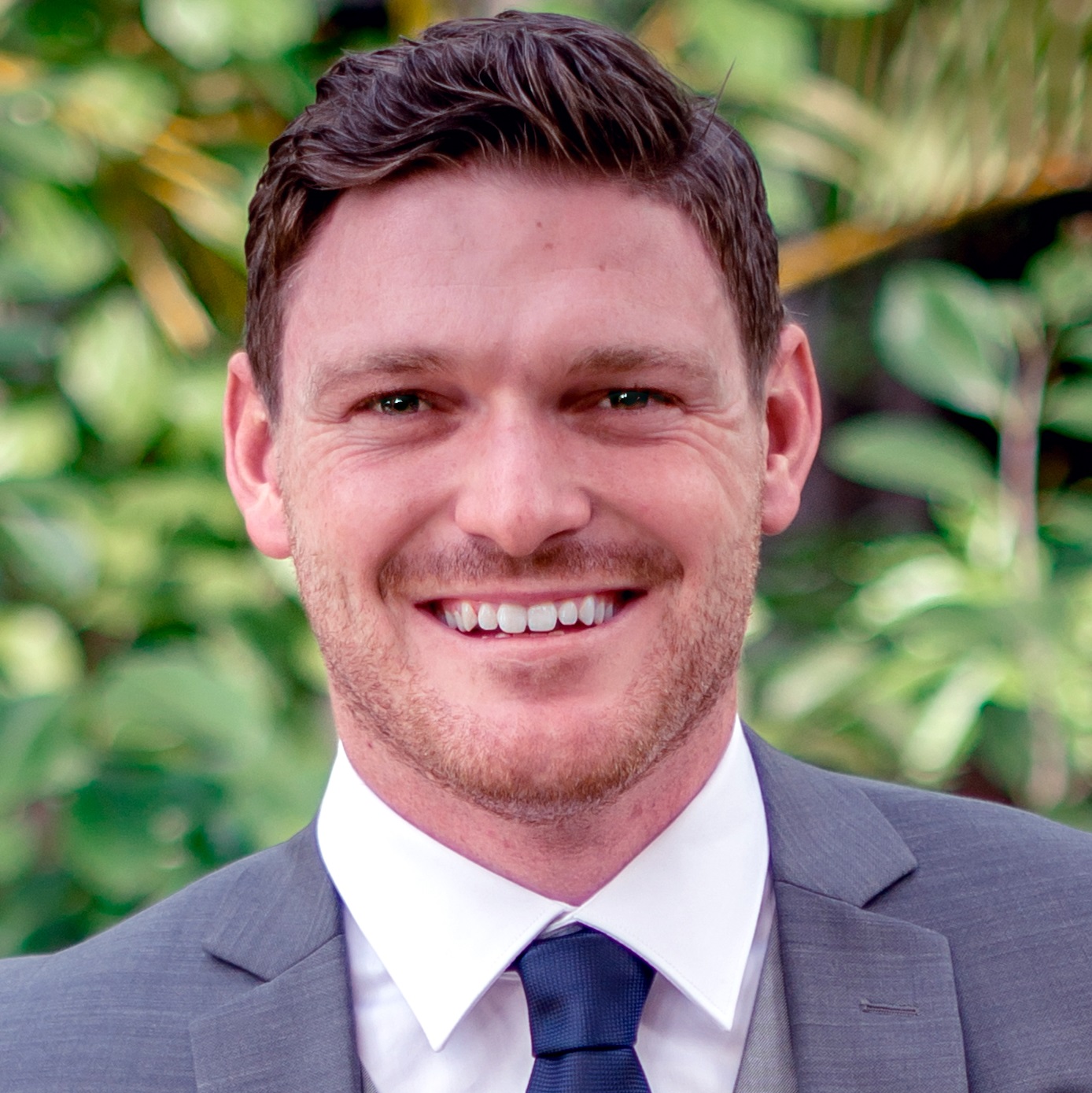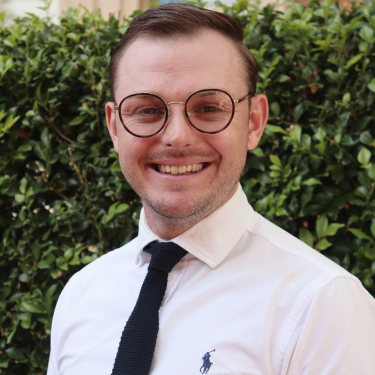- K/12
- Higher Education
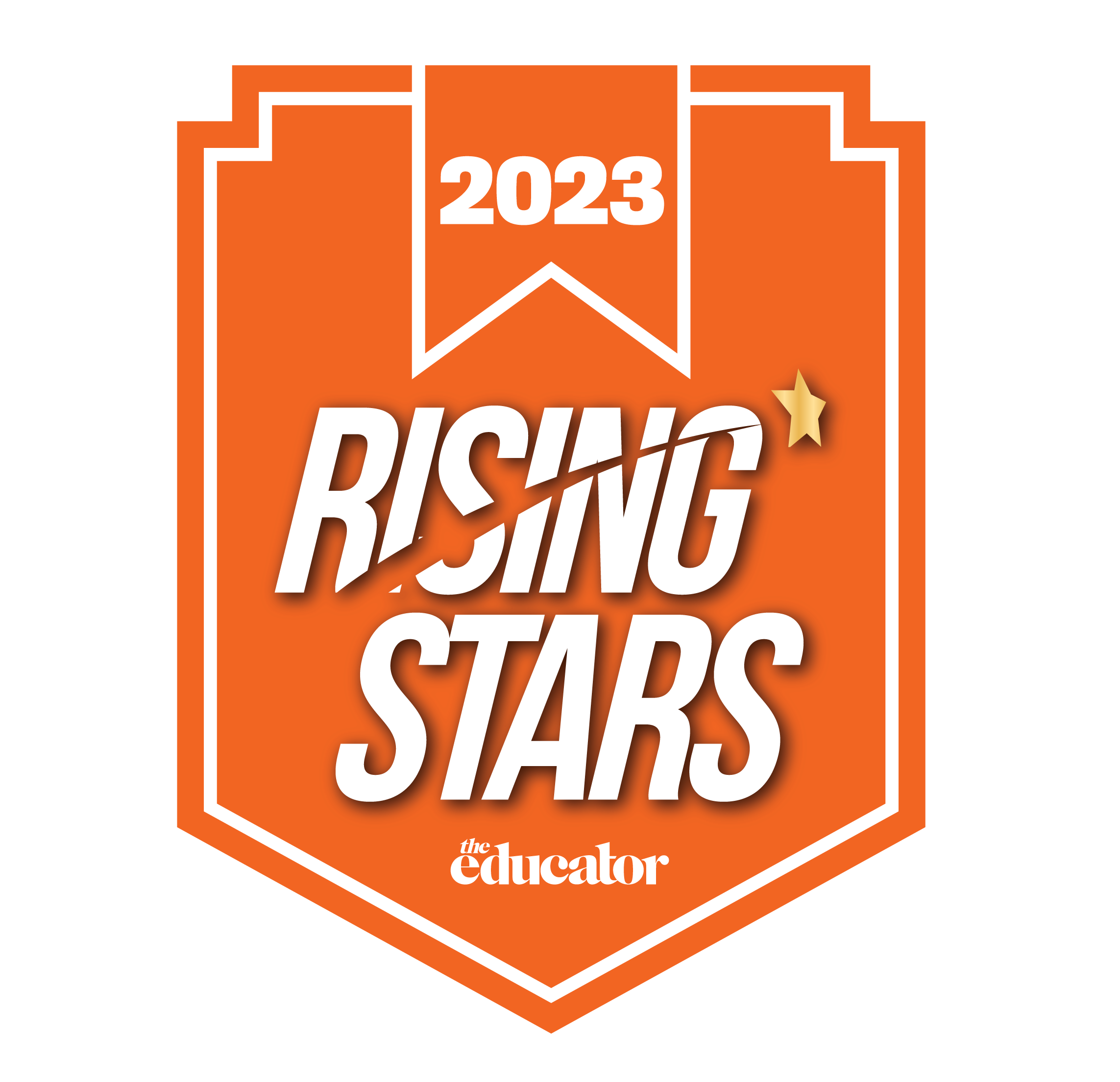
Best Educators in Australia Under 35 | Rising Stars
Jump to winners | Jump to methodology
Still learning
Standing out as an educator goes beyond the four walls of the classroom. It’s about forging relationships, developing as a professional and being dynamic to changing circumstances – all in the name of giving children the best possible learning experience.
All of The Educator’s Rising Stars 2023 have risen to this challenge and displayed:
- leadership
- innovation
- achievement
“They need that connection with me and to have trust and respect; that’s how learning happens in the classroom once we have that connection”
Georgi Eadie, St Margaret’s Anglican Girls School
Each can lay claim to being among the best educators under 35 in Australia and have begun their careers with their strongest foot forward.
SchoolHouse education consultant Ryan McKenzie says not only are they delivering for their students, but they’re also helping reshape schools.
“I think young educators have had and played a fantastic role over the last few years in bringing education in Australia up to the 21st century. Their classroom techniques have been probably the biggest trend I’ve seen over the last couple of years, and that has filtered into the rest of the school,” he says.
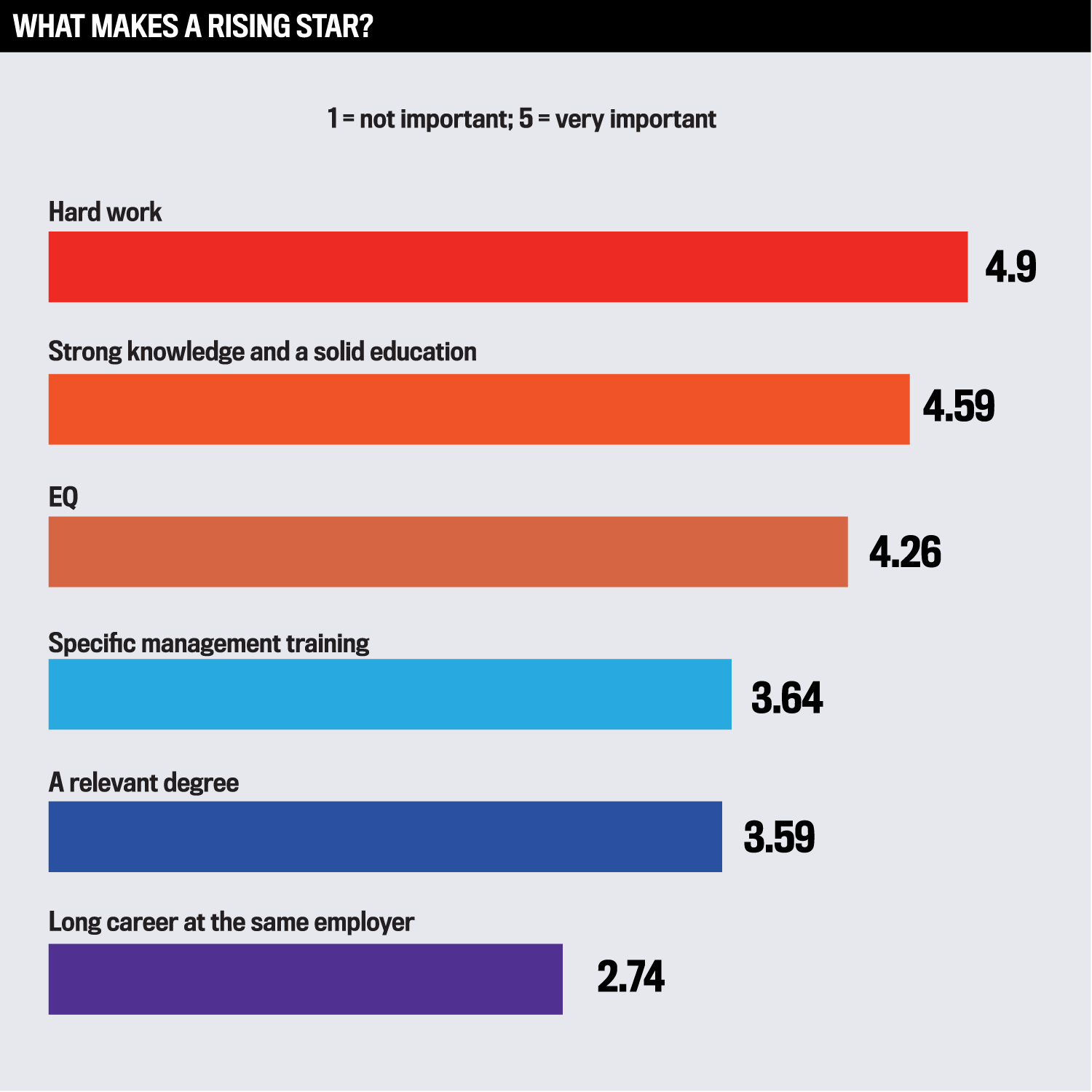
The best educators build rapport
Delivering lessons and imparting knowledge are most effective when there’s a connection between student and teacher.
The insight TE’s Rising Stars have gained is that synergy is truly created away from a formal learning scenario.
James Forsyth of Calrossy Anglican School in New South Wales explains, “I think the biggest strength with my teaching is probably the ability to build rapport with my students. And if you’re able to do that, the students are so much more willing to get on board with what you’re doing in the classroom and try to improve their learning.”
Senior humanities teacher Forsyth takes the time to connect with his classes away from regular school time.
“I do a lot of extracurricular activities outside school, and if they see you in a different setting or not always in that really formal setting, they see you in a different light as well. So, they’re more willing to try and get on board with what you’re doing in the classroom and being engaged,” he says.
Also following a similar tact is Georgi Eadie, primary teacher at St Margaret’s Anglican Girls School in Queensland.
“I’m responsible for coordinating our school podcast, and I took that from a really early project to something now that’s quite fully fledged,” she says.
The students interview members of the public and former pupils about issues affecting them, then record and edit the finished product.
“I think that teaching them those entrepreneurial skills and digital literacy skills is so important, although it’s not a classroom lesson per se. They’re learning all of these life skills because that’s their future – this digital world,” Eadie adds.
This is echoed by McKenzie, who explains teaching goes beyond preparing children ready for future studies.
“Technology is huge. So having young educators who understand that there is a whole new outlook on career paths as well is going to be really good for kids understanding, their wellbeing and what that looks like. It is giving someone who has an interest in a particular area a pathway to succeed in that area, rather than just the traditional way of going to university,” he says.
Mark Norberry, a high school teacher at Bishop Druitt College in New South Wales, is another Rising Star who focuses on being seen outside of his core role.
“I strive to create connections with my students that are genuine, show an interest in their extracurricular hobbies and get to know them more than a name on a test paper,” he explains. “Further to this, I am an active member of our school’s mentor program and guide students to achieve their academic, sporting and wellbeing goals by helping them organise, plan and implement strategies and cope when things don’t go as planned.”
Networking and development make better educators
Simply standing at the head of the classroom doesn’t encompass a teacher’s role is over, according to the 2023's Rising Stars.
Eadie realised that in her first year on the job, which coincided with the pandemic.
“It was a baptism of fire, and university did not prepare me for that whatsoever. But I am fortunate at my school that I am really well supported; I have a great mentor, and she and the other colleagues at my school have been really supportive, even giving me a lot of opportunities to develop as a professional,” she says.
Alongside that, Eadie presented at the Early Childhood Teachers’ Association conference and went on an interstate exchange to a school in Melbourne.
Forsyth also feels that there isn’t enough appreciation of how beneficial networking is.
“I don’t think university actually fully prepares you for what teaching is like, and I think that’s why we see a lot of people actually leaving the profession,” he says.
After being offered a job at his current school after impressing as a student trainee, Forsyth has made sure to broaden his horizons.
“I think it’s really important that you network within the teaching industry and that you don’t just stay stationary within your school environment because there’s a wealth of knowledge out there and teachers are really collegial,” he adds.
Forsyth is the geography convenor of the Association of Independent Schools of NSW. His role includes:
- convening the Geography Professional Learning Advisory Committee
- being involved in professional learning programs for geography
- coordinating the AISNSW Geography Conference in conjunction with AISNSW consultants
Lydia Pickard of St Ursula’s College Toowoomba in Queensland proves that networking and development are keys to being an outstanding performer. She’s a dance teacher and makes sure to keep pace with its changing nature.
“Staying current in your industry of practice is important to show students that you are relevant and aware of what is occurring in the industry,” she says. “I share my experiences with my students after participating in dance professional development and attending dance performances. I also teach at a private dance studio, which I also believe contributes to making my passion clear. My students are aware that I am involved in both sides of the dance education sector.”
“I strive to create connections with my students that are genuine, show an interest in their extracurricular hobbies and get to know them more than a name on a test paper”
Mark Norberry, Bishop Druitt College
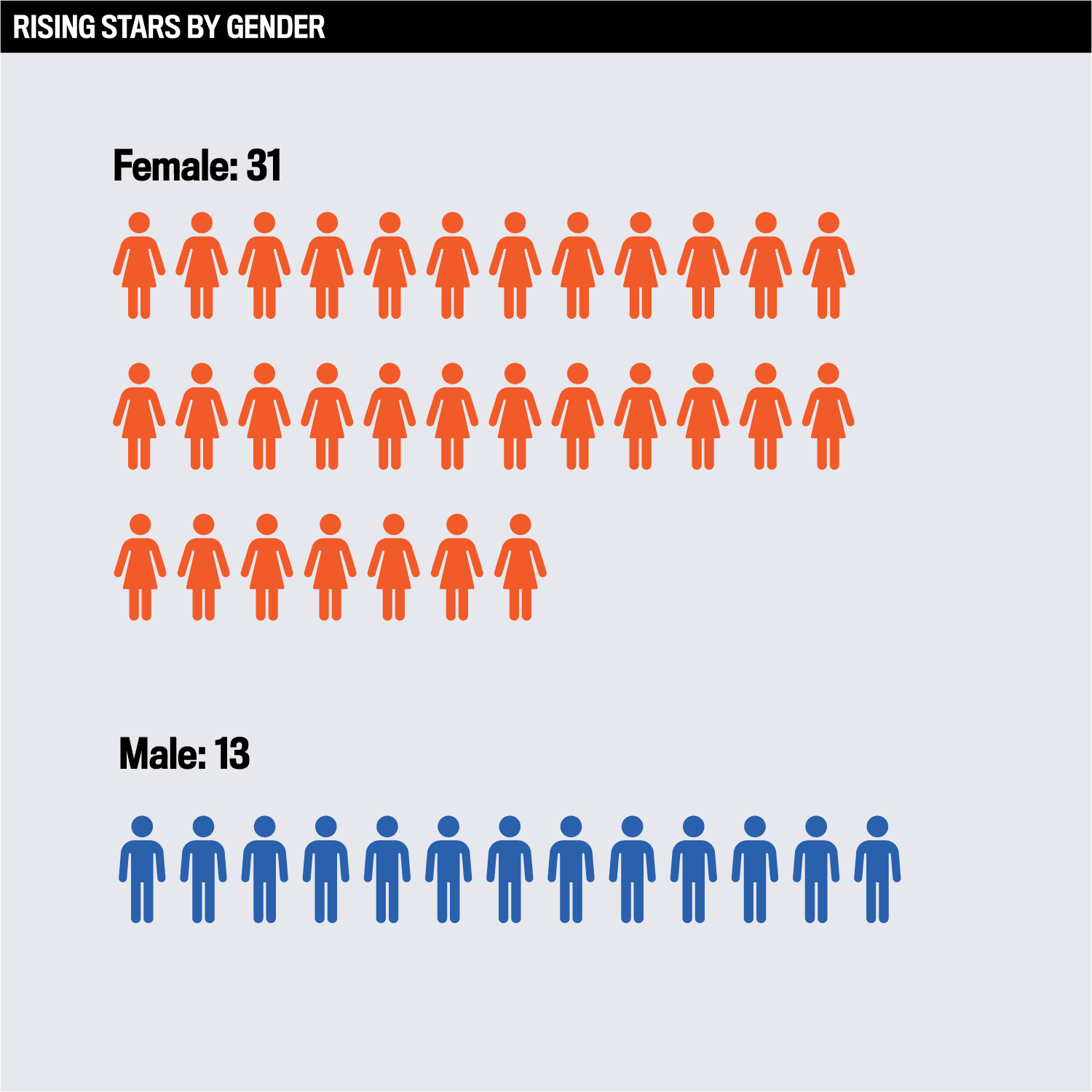
The best educators are dynamic
TE’s Rising Stars admit they can build rapport and develop professionally, but even then, things don’t always go according to plan. They acknowledge the need to be adaptable and sense when lessons aren’t delivering the intended result.
“Being dynamic as a teacher is probably one of the biggest skills that you can have as an educator. You might have planned this lesson and think it should work really well. And then you look at it, you get that visual and sort of oral feedback from the students and you know, I need to really shift here because I’m going to lose them,” Forsyth says.
And he adds, “I think it very much depends on class dynamics too, such as who’s in the class, what year group and those types of things. But you can normally tell pretty quickly.”
Eadie teaches Year 1, and the need to be dynamic is heightened with her young students. Her strategy is to prioritise a connection that enables the class to feel they can communicate with her.
“They need that connection with me and to have trust and respect; that’s how learning happens in the classroom once we have that connection,” she says. “Unfortunately, if they’re not feeling an activity or because they’re hungry or because they’ve come back from PE really excited, they need a bit of a break. I do have that flexibility in my plan that I can accommodate that.”
Underlining how key it is to be able to change course to ensure the best for her students.
“It’s so important that they are happy at school and that their wellbeing is prioritised, because the learning comes from that,” Eadie adds.
Tyson Wood, consultant at SchoolHouse, concludes that the industry is now in a positive position to appreciate the Rising Stars and continue their impact.
“There’s never been a better time to succeed in this profession. Supply and demand means there are fewer and fewer great teachers out there, and there’s never been a greater demand for quality teachers than there is right now in Australia,” he says. “We live in a time where the industry as a whole has recognised that we need to do more and create more milestones for teachers.”
“Being dynamic as a teacher is probably one of the biggest skills that you can have as an educator”
James Forsyth, Calrossy Anglican School
Best Educators in Australia Under 35 | Rising Stars
- Alyssa Malone
Head of House
Lindisfarne Anglican Grammar School (NSW) - Andrew Millman
Leader of Pedagogy
St Edward's Primary School (NSW) - Anna Rumjahn
Teacher
John Palmer Public School (NSW) - April Clarke
Teacher
Miami State High School (Qld) - Brianna Witte
Humanities Teacher
Haileybury (Vic) - Chloe Yates
Teacher and Program Leader, Social Justice
Loreto College Coorparoo (Qld) - Daniel Edwards
STEM Specialist Teacher
Montello Primary School (Tas) - Eleni Dimitriadis
Learning Support Facilitator and Head of Learning Support
Masada College (NSW) - Elizabeth McNulty
Teacher
Bellbird Park State Secondary College (Qld) - Ellen Moffatt
Head of Middle School – Elsternwick Campus
Wesley College (Vic) - Ellie Wang
Teacher and STEM Coordinator
Sunnybank State High School (Qld) - Esme Keogh
Teacher
Australind Senior High School (WA) - Georgi Eadie
Primary Teacher
St Margaret’s Anglican Girls School (Qld) - Hope Laaiva
Head of Department – Science
Marsden State High School (Qld) - Jack Reed
Head of Learning Design
Pulteney Grammar School (SA) - Jayde Jenkins
Teacher and Sustainability Leader
St Thomas More Primary School (Vic) - Justin Betts
Head of Department – Technologies
Sunnybank State High School (Qld) - Kayleigh Rudman
Teacher
Ormiston College (Qld) - Kelsie Thompson
Classroom Teacher
Mount Brown Public School (NSW) - Lauren Walters
COVID Intensive Learning Support Coordinator
St Agnes Catholic High School (NSW) - Lydia Pickard
Head of Faculty – Arts
St Ursula’s College Toowoomba (Qld) - Mae McDonald
Visual Art Teacher
Loreto College Coorparoo (Qld) - Matilda Goode
KG Classroom Teacher
Glendore Public School (NSW) - Michaela Mizzen
Founding Prep Teacher
The Village School Gold Coast (Qld) - Mitchell Browne
Senior Mathematics, Physics and Technologies Teacher
Seymour College (SA) - Natalka Kostraby
Head of Forbes House
Scotch College Melbourne (Vic) - Nicholas Cooper
Mathematics Teacher
Seymour College (SA) - Phoebe Parish
Head of Special Education Services
Bellbird Park State Secondary College (Qld) - Rhiannon Hibberd
Teacher
Ormiston College (Qld) - Sam Davies
Head of English
Wodonga Senior Secondary College (Vic) - Samantha Berridge
Global Partnerships Coordinator
Catholic Schools Parramatta Diocese (NSW) - Sarah Fry
Teacher
Bellbird Park State Secondary College (Department of Education Queensland) (Qld) - Sophie Monteith
Teacher and Pedagogy Leader
Loreto College Coorparoo (Qld) - Tyler Dempster
Education Support Coordinator
Bendigo Special Developmental School (Vic)
Methodology
The Rising Stars 2023 report was launched with a call for entries to the entire Australian K–12 education sector. To be eligible, candidates must be aged 35 or younger, be working in a role related to the K–12 education sector, and have demonstrated effective leadership, innovation and achievement in their career to date. Both self-nominations and nominations on behalf of colleagues are accepted.
The winners were judged on the substance of their nominations, namely, those that illustrated specific outcomes that were achieved and the relevant data to support their claims. The Educator team carefully reviewed each nomination, examining how each individual had made a meaningful and tangible difference to teaching and learning outcomes in their schools. This could include data on improvements across key areas such as students’ in-class engagement, academic achievement, attendance and wellbeing.



